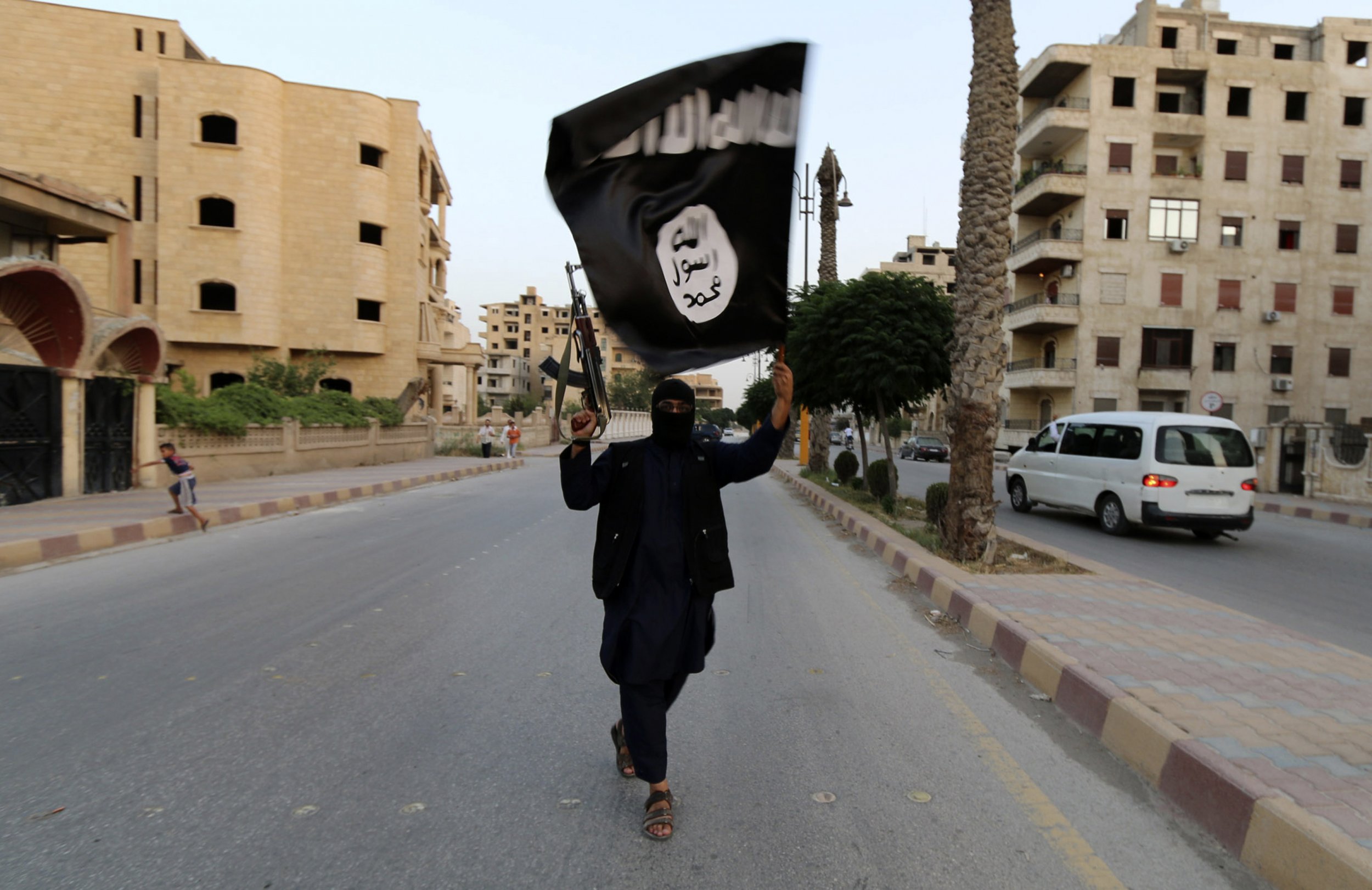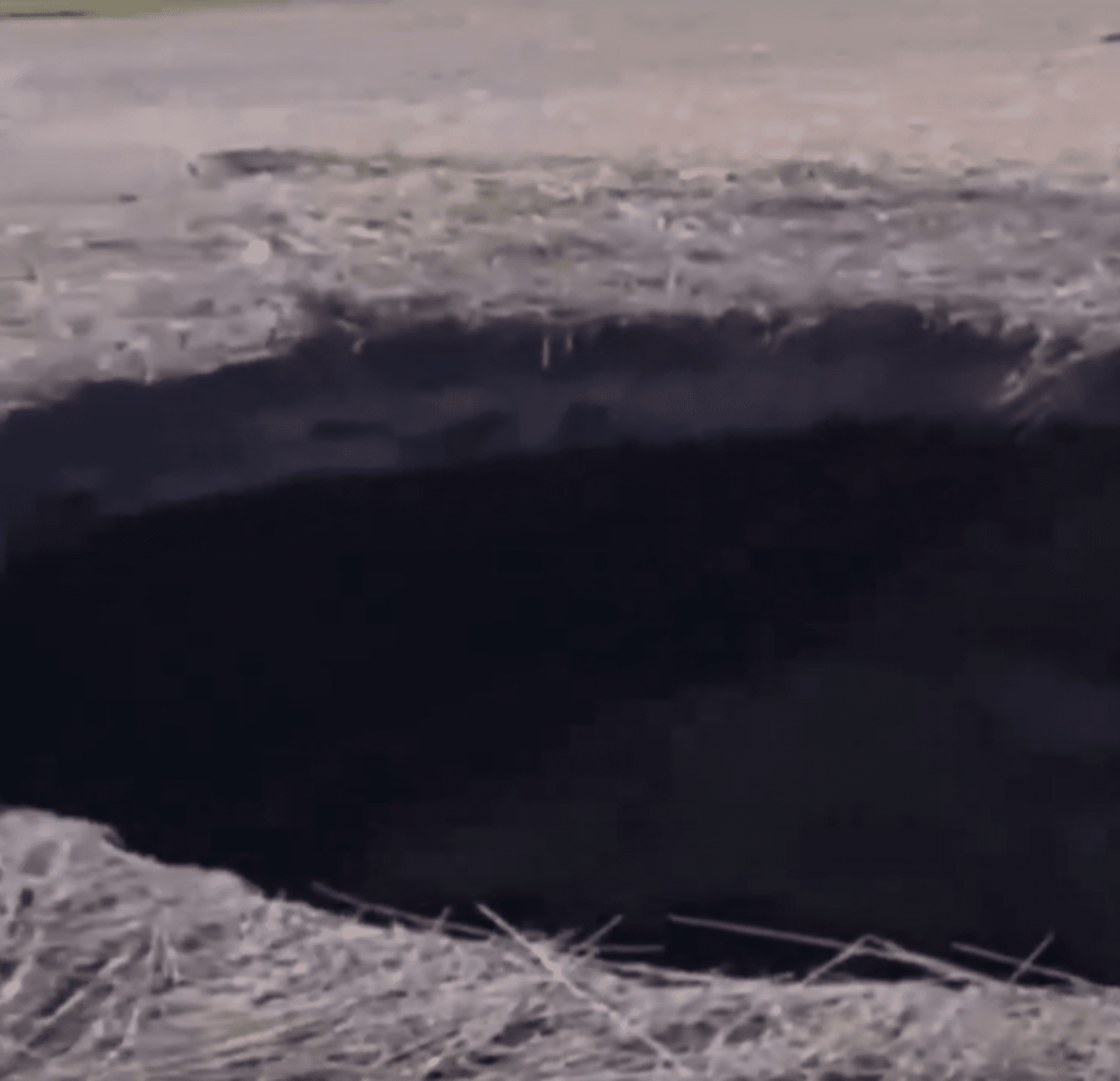
Experts say that the Islamic State have acquired the materials necessary to make a dirty bomb - a device that uses radiological or chemical materials along with conventional explosive - but that any weapon they can develop is likely more effective as a means of causing fear than causing damage.
A Twitter account belonging to a British jihadist claimed last week that ISIS had acquired the means to make a dirty bomb.
Muslim al-Britani, who says he was born in 1976 in Dudley and describes himself as an electronics/explosives expert with a "part time job" in Syria as a 'sniper', has had his account suspended at least six times, most recently last week after he boasted that ISIS had acquired the necessary materials from Mosul university after seizing control of the city.
His first three tweets after other ISIS affiliated accounts hailed his return to Twitter were screengrabs of media stories quoting him on the comments that an Isis bomb is due soon, with the caption "Islamic State has acquired a dirty bomb!"
Iraq's UN ambassador Mohamed Ali Alhakim wrote to the UN secretary general Ban Ki-Moon in July to warn that the group had seized materials that "can be used in manufacturing weapons of mass destruction", referencing the Mosul university uranium as well as 2,500 chemical rockets filled with sarin, a human made chemical that rapidly attacks the nervous system, as well as other chemical remnants.
Dina Esfandiary, a research associate with the Non-Proliferation and Disarmament Programme at the International Institute for Strategic Studies (IISS), who recently published a paper on ISIS's potential acquisition of weapons of mass destruction with colleague Matthew Cottee, confirms that they did likely acquire 40 kilograms of uranium from Mosul university, but is keen to point out that they almost certainly lack the knowledge to be able to turn the low-grade material into a nuclear device.
"The materials they have are not radioactive enough to cause a great deal of damage or function as a working device," says Esfandiary. "Where the weapon is effective is to cause fear."
Dr Mohammad Zeki Khedher, who was a professor at Mosul university in the 1990s, agrees. "During the 90s most of the scientific materials were taken away by the UN," he says. "After the occupation of Iraq most of the [equipment from the] laboratories had been smuggled [out of the country]."
However, Esfandiary also warns that "nothing is impossible. If they're determined enough then they'll find a way to develop a radiological weapon and use it."
In their paper, Esfandiary and Cottee say: "The most likely threat is a radiological device of some kind. It is relatively simple to develop a so-called 'dirty bomb', in which explosives are combined with a radioactive source like those commonly used in hospitals or extractive industries."
However, a weapon of this type is likely to cause "more disruption than destruction", even if set off in central London for example. Esfandiary says that even if such a device were set off in the middle of Trafalgar Square in London, most of the danger would come from the conventional explosive, with little long-term danger to health from the radiological element.
As for the chemical weapons stockpiles, their contents is likely old and partially destroyed or degraded, according to Esfandiary and Cottee. "As chemical weapons go, sarin is particularly susceptible to degradation if it is impure," they write. "Its shelf life is estimated to be one to two years. While sarin's degraded remnants are still toxic, they cannot be used as chemical weapons."
The other chemical weapons in the facility are secured behind thick concrete wall. With no guarantee that the contents are salvageable, retrieving them would be a huge risk in cost and safety.
Ultimately, Esfandiary says: "With the cost and danger to themselves that creating a bomb would cause, the fear that ISIS might be able to build a bomb is more powerful than the bomb itself."
Uncommon Knowledge
Newsweek is committed to challenging conventional wisdom and finding connections in the search for common ground.
Newsweek is committed to challenging conventional wisdom and finding connections in the search for common ground.
About the writer
To read how Newsweek uses AI as a newsroom tool, Click here.








